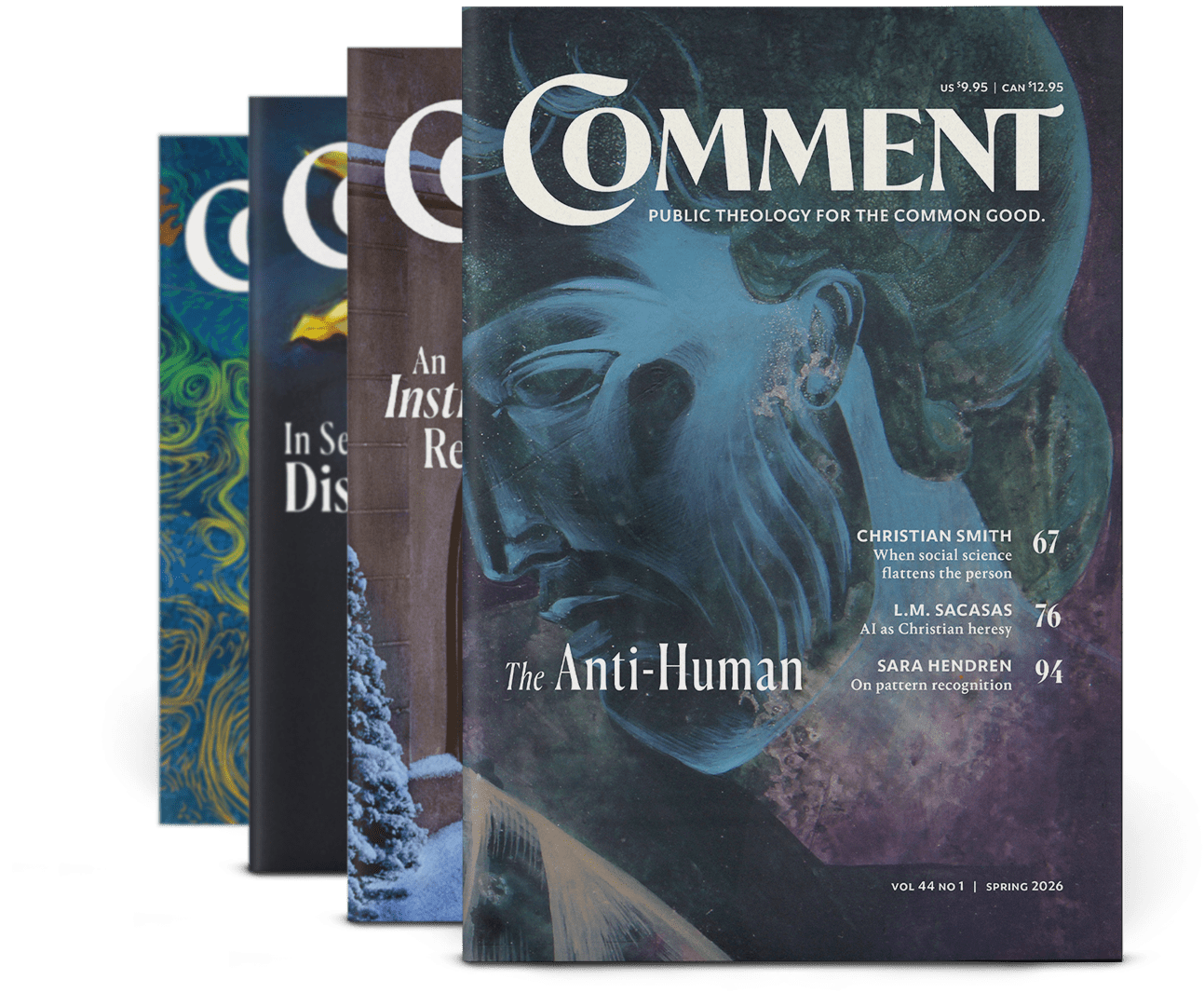A new view of the “American Dream” was being created, including a “right” to unlimited consumption, achieved without personal responsibility. But now this unrealistic, ephemeral dream has become a nightmare, exported globally.
DIGITAL
$14
USD
Get unlimited online access.
- Early access to new issues
- Unlimited access to our entire archive
- Bookmark articles to your account
- Listen to select long-form articles
PRINT+DIGITAL
$24
+ SHIPPING (USD)
Get unlimited online access + 4 print issues per year.
- Receive our quarterly print magazine
- Early access to new issues
- Unlimited access to our entire archive
- Bookmark articles to your account
- Listen to select long-form articles
COMMENT PATRON
$500
(USD/CAD)
Support the people who make Comment possible.
- A full charitable tax receipt
- A complimentary Comment subscription
- Special updates from Anne Snyder
- Early access to new issues
- Unlimited access to our entire archive
- Bookmark articles to your account
- Listen to select long-form articles



